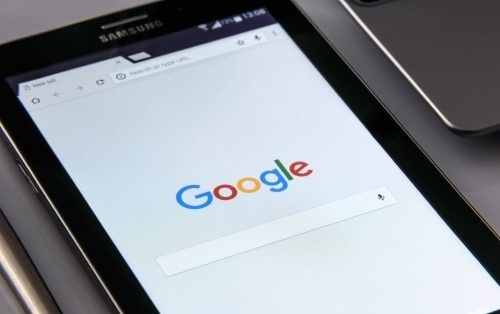


By Jason Aten
Google was back at CES in a big way to highlight Google Assistant, the voice assistant that the company says runs on more than one billion Android phones and smart home devices. And while the company previewed several interesting features, it was a few privacy updates that might make the most difference.
Privacy is a hot topic, not just at CES, but across the tech industry. Google has faced its share of criticism over how it handles and monetizes user information, and has seen increased pressure from regulators and lawmakers to do more to protect your personal information.
And here at CES, Facebook and Apple are scheduled to square off over privacy on a panel that is sure to highlight the two tech giants' different approaches to user information.
Back to Google for a minute. I've been critical of Google in the past, mostly over the fact that its business model is essentially about making money from knowing as much as possible about you, and using that information to show you targeted ads. The company has been very successful at that.
But it's one thing to track the website I visit and then show me ads based on the products I looked at on Amazon or Pottery Barn. It's an entirely different thing once you come into my home and start listening to my conversations, and in some cases, watching me.
Which is exactly what Google Assistant does on everything from your Android smartphone to your smart speaker, your TV, your Chromebook, or any one of an ever-increasing number of connected devices. That means that people are starting to realize that more and more of their personal information is being monitored, recorded, and even listened to.
In fact, Google isn't the only company that faced scrutiny over how it handled recorded interactions with Google Assistant. Facebook, Apple, Microsoft, and Google were all criticized over how they access those recordings and have made changes to give users better options for limiting how their data is used. Google and Apple even changed their default settings to opt out so that users won't have their information saved without their consent.
In addition, Google says that "the Assistant is designed to wait in standby mode until it is activated, like when you say 'Hey, Google.' And when it's in standby mode, the Assistant won't send what you are saying to Google or anyone else."
And if you want to be sure none of your information is being stored, you can say, "Hey, Google, delete everything I said to you last week."
But today the company went even further, with a few changes that might seem small but are actually a big improvement in how it handles these interactions and recordings.
For example, you can say "Hey, Google, that wasn't meant for you" if you accidentally activate Assistant while talking about something else. And Google is rolling out a new voice action that lets you ask things like "How are you keeping my information private?" and will give you answers to your privacy questions just using your voice.
Privacy isn't going to stop being a big issue, because there's an inevitable tension between users and the services that track and store their information. Those services are helpful and often free, but there's a real cost in terms of your privacy. Today, in at least a small way, Google is making changes that give you better control over your information if you happen to be one of the one billion users of Google Assistant. And that's a big deal.
